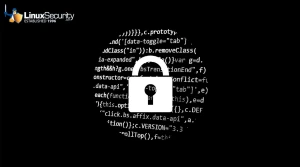IT's Security Paradox
It's important, though, to read between the lines before placing the blame solely on IT. As mi2g itself noted, the often chaotic growth of Linux has resulted in a tangle of procedures and a variety of security upgrade policies that make the administrators' job tougher. . . .
It's important, though, to read between the lines before placing the blame solely on IT. As mi2g itself noted, the often chaotic growth of Linux has resulted in a tangle of procedures and a variety of security upgrade policies that make the administrators' job tougher.
That growth has made Linux a more appealing target for hackers. But it will also generate more and better security products, and a deeper IT understanding of Linux security needs, policies, and vulnerabilities.
A survey taken at the Computer Security Institute's annual conference calls for the same kind of between-the-lines consideration. Most of the 350 IT executives participating in the survey considered their networks to be more secure today than they were a year ago. Yet the same group reported sharp increases in the numbers of attacks their networks are experiencing.
Is there a disconnect at work here? Is the increased sense of security delusional? Or is something else going on?
The link for this article located at securitypipeline.com is no longer available.























